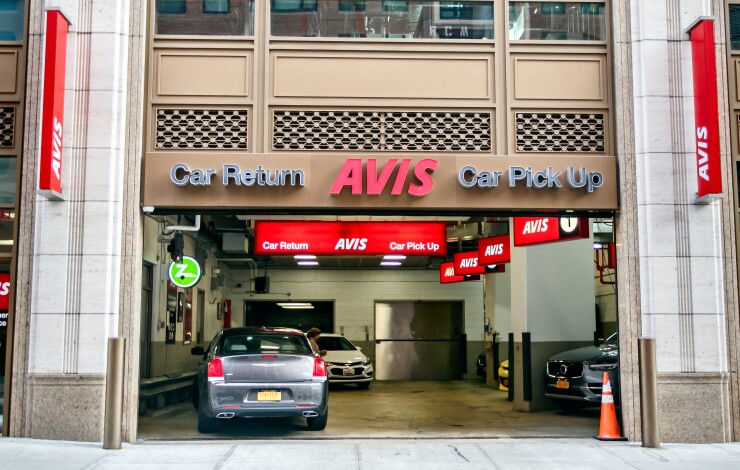Avis Budget Car Rental is preparing to sponsor a $250 million securitization of revenues from a single lease on a fleet of some 524,368 cars for use in its rental car business.
The issuer, Avis Budget Rental Car Funding, or AESOP 2024-2, is a master trust and the notes share collateral on a pari passu with the other outstanding series of notes from the issuer, according to ratings analysts at Moody's Investors Service.
AESOP Leasing and AESOP Leasing Corp are the special purpose vehicles that own the automobiles, according to Moody's, and the issuer will repay the notes with funds from the sponsor's lease payments, sale of the vehicles or proceeds from refinancings. The deal's capital structure notes that AESOP 2024-2 will issue three classes of notes through three tranches.
JPMorgan Chase is on the transaction as an initial multi-series letter of credit provider, while Bank of New York Mellon is participating as the indenture trustee, according to Moody's.
Classes A, B, And C will all have the same legal final maturity date, October 2028, Moody' said, but are expected to carry modeled coupons of 5.56%, 5.99% and 6.46% on the A, B and C notes, respectively. Moody's counts Avis' strength as a strong fleet manager as a credit strength. Also, because the fleet is so important to Avis' business—its business relies on 99% of the U.S. rental car fleet—the company has strong incentive to affirm the lease in the event of a chapter 11 bankruptcy.
The collateral is also highly liquid, because of the robust secondary market demand for the cars. This helps support overcollateralization, which serves as a robust form of credit enhancement to the notes, Moody's said. Credit enhancement levels fluctuate over time with changes in the fleet composition, Moody's said. For instance, if the proportion of non-program vehicles increases, or if the proportion of vehicles from non-investment grade manufacturers increases, then credit enhancement levels will rise.
Aside from overcollateralization, subordination, the JPMorgan letter of credit and a cash reserve account provide support to the notes, Moody's said.
The main risk to the timely repayment of notes is if the sponsor and primary lessee defaults on its obligation to make its required lease payments to the issuer, according to Moody's.
Another potential issue is the ever-increasing concentration of Tesla vehicles in the pool. The concentration limit for electric vehicles has increased to 25% in the current deal, up from 15% in the series 2022-5, Moody's said.






